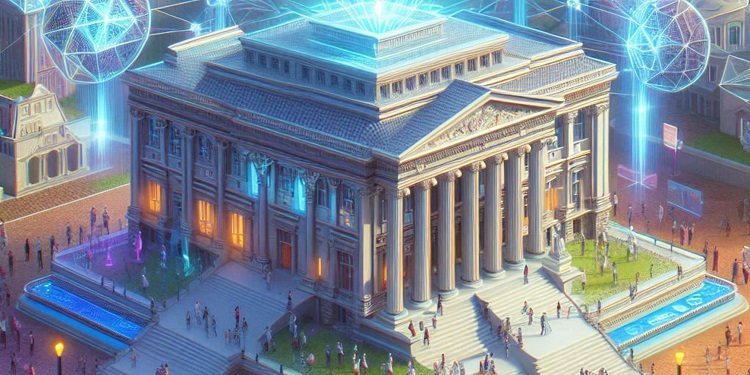A collective of ten prominent museums, including the Crystal Bridges Museum of American Art in Arkansas, the Swiss National Museum in Zurich, and Museo de Arte de Puerto Rico, recently launched an array of blockchain projects through the Web3 for the Arts and Culture (WAC) Lab. The projects were unveiled during a livestreamed demonstration on May 30, aiming to establish novel relationships with museumgoers by introducing innovative fundraising models and live “minting” experiences. The initiative strives to attract younger, tech-savvy audiences, secure funding, and maintain relevance in an increasingly digital world.
We Are Museums, a France-based nongovernmental organization, initiated the WAC Lab in 2021 with the mission of educating cultural institutions in Web3 and transforming them into pioneers of emerging technology. The initiative is supported by the Tezos Foundation, the nonprofit arm of the Tezos blockchain, recognized for its art world engagement and lower environmental impact. Diane Drubay, founder of We Are Museums and WAC Lab, emphasized the necessity for museums to adapt rapidly to new models and challenges to stay relevant for current and future generations.
The WAC Lab program offers a six-week fellowship to train museum professionals in Web3 literacy and a regular online discussion series, WAC Weekly, focused on leveraging blockchain technology. Additionally, the program includes a monthlong accelerator, now in its third season, which assists institutions in developing blockchain projects. These projects utilize various funding models, ranging from institutional financing to self-raised budgets.
Each season of the WAC Lab centers on a specific theme, with past themes covering fundraising, NFTs, and acquisitions. The most recent season, running from April 22 to May 19, explored the creative application of blockchain by merging museum culture with blockchain culture, unveiling the potential for decentralized governance and new loyalty programs. For this fellowship, 20 institutions were selected, while 10 major museums participated in the accelerator, each paired with one of seven participating tech companies to develop their projects.
The Crystal Bridges Museum of American Art collaborated with the digital agency Broken Egg to create an immersive experience for an upcoming experimental space. This project aims to guide visitors through the woodworking processes of various contemporary artists featured in the museum’s permanent collection. Kim Lý, an interactive media producer at the museum, expressed hope that such projects would significantly increase the museum’s exhibiting capacity, marking a pivotal moment for the institution’s long-term digital strategy.
Nimi, a Web3 tech startup, partnered with three institutions to enhance engagement with younger audiences through digital artwork collectibles. Anh Nguyen, Nimi’s CEO and founder, indicated that their strategy involved leveraging token-based engagement to introduce gamification, loyalty, and reward models, thereby empowering younger patrons to have more ownership and influence in the arts.
For instance, Nimi worked with the Goethe-Institut Lisbon to develop a system where attendees earn membership tokens with accrued benefits. In collaboration with 221A, an arts and culture space in Vancouver, they developed a token-based library card. Nimi also assisted Germany’s Museum Ulm with nextmuseum.io, an online platform for collaborative exhibition curation. Funded by the German Federal Cultural Foundation, nextmuseum.io aims to transform into a decentralized autonomous organization (DAO), allowing participants to have a say in the platform’s direction by earning governance tokens through active engagement.
Nguyen highlighted the pressing need for such strategies, as the average age of museum members is often in the 60s or 70s, with minimal engagement from millennials and Gen Z. Despite steady visitor numbers, younger audiences are less inclined to become members or support museums in the long term.
A report by the International Council of Museums noted that the Covid-19 pandemic has permanently altered museums’ perception of the digital world. The economic crisis resulting from the pandemic poses significant challenges, but many institutions now recognize the critical importance of digitization. Drubay also described museums as undergoing an identity crisis in the post-pandemic world, necessitating bold steps towards Web3, contrasting with their slow adoption of social media and Web 2.0.
At the conclusion of WAC Lab’s demo day, Drubay observed that the projects demonstrated the extent to which cultural institutions are willing to innovate and embrace Web3 technologies.
